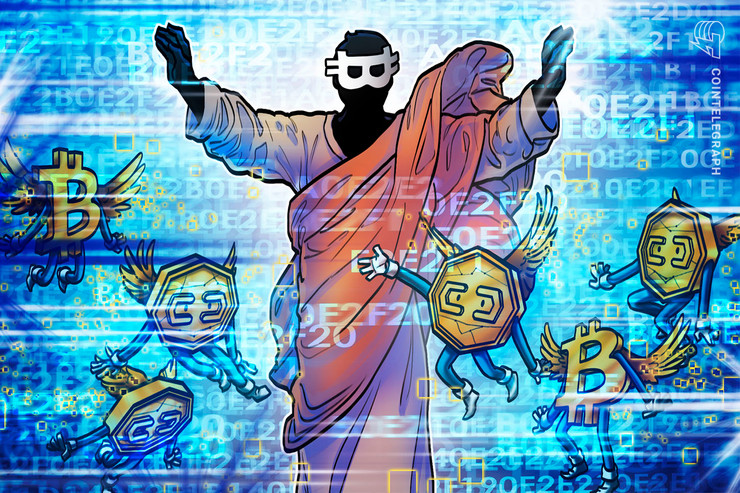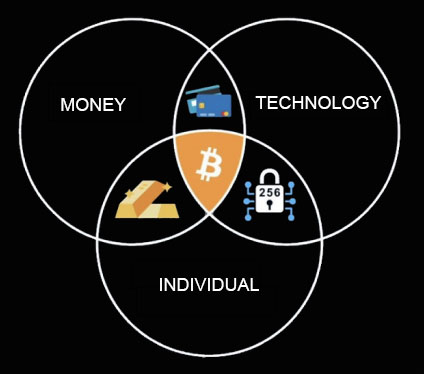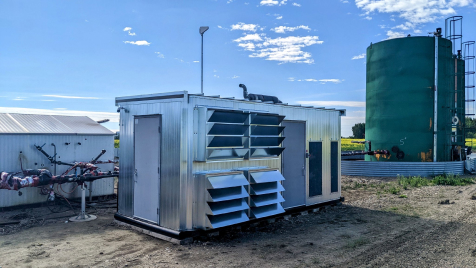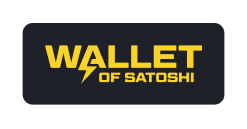Why BITCOIN?
Bitcoin
Bitcoin is a new way of storing and transferring value. Unlike the existing monetary system, Bitcoin does not require a central entity (bank, state) to be trusted. This makes Bitcoin the first open and truly borderless currency.

It provides full transparency and ownership without counter-party risk. For the first time in human history, anyone can own and store an asset that is truly scarce, does not need permission to be used, is decentralised, all-inclusive, easily divisible, mathematically verifiable and cannot be seized. Your transaction cannot be prevented or reversed.
Bitcoin is mathematics that eliminates the bad side of human nature. At the same time, it separates money from the state.
It can be sent quickly and at almost no cost anywhere in the world, at any time. A true revolution made possible by technology.
Features

Limited supply
Divisible
Open, borderless
Permissionles
Censorship-resistant
Resilient
Durable
Peer to peer (between users)
Verifiable
Portable
Seizure-resistant
Exchange your attention for bitcoin. Watch the video, read the content and YOU WILL RECEIVE 100 SATOSHIS.
Bitcoin's origins
The Bitcoin project was announced by the pseudonymous author Satoshi Nakamoto on 31 October 2008 in a cryptography mailing list and whitepaper. On 3 January 2009, the first block was created. On 9 January, the first version of the Bitcoin client v0.1 was released. Just a few days later, the first Bitcoin transaction was made between Satoshi Nakamoto and renowned computer scientist Hal Finney.
The first purchase of a real-world commodity with bitcoin was on 22 May 2010, when Laszlo Hanyecz made a purchase of two pizzas with an equivalent of 10,000 bitcoins.


Confirming transactions
Anyone can participate in the process of verifying and validating bitcoin transactions. This process is called mining. Mining is also where new bitcoins are created. The final, mathematically limited number of bitcoins is 21 million. Every 4 years, the number of newly issued coins is halved (halving) in the mining process. Between now and 2140, less than 9% of coins will be issued.


BITCOIN COURSE
registerBitcoin and energy
The mining process requires a lot of processing power, which means a lot of energy. Miners are subject to the free market and consequently seek the cheapest sources of energy. There is a public misconception that the Bitcoin network consumes more energy than all other activities. One of the most recent studies refuting this misconception can be found at https://www.lynalden.com/bitcoin-energy/.
Mining itself uses a business model that requires the use of the cheapest energy. It is generally located where there is surplus energy production (stranded energy) or surplus energy is generated as a result of another activity (e.g. oil extraction releases a lot of methane gas).


Bitcoin has a unique opportunity to harness surplus energy to create added value. Excess energy would otherwise be discarded. Bitcoin can also be environmentally friendly, e.g. by using methane for mining, it reduces the release of a very harmful greenhouse gas into the atmosphere.
Bitcoin also serves as a catalyst in the energy market, allowing energy producers to ensure grid stability in times of surplus and shortages.

Why Bitcoin
Bitcoin was created as a new way of digitally exchanging value or currency over the World Wide Web, while solving the problems of the current financial system. The purpose of bitcoin was to offer a new digital currency to the "little" person, independent of financial elites, allowing them to exchange digital value globally, freely, reliably, securely, efficiently and privately.
Bitcoin provides sovereignty and freedom to the individual and allows you to store your purchasing power for the future.
Bitcoin is software. Code is speech. Bitcoin is freedom of speech.
Bitcoin gives power back to the individual!
Glossary
- Bitcoin (BTC) – stands for ecosystem, network.
- bitcoin - currency
- Satoshi – the smallest unit of bitcoin currency ; 1 satoshi = 0.00000001 BTC.
- Mining - the process by which transactions on the bitcoin network are verified and validated, and the process that ensures the security of the system and the consent of all participants. The creation of new bitcoin is also part of this process.
- Bitcoin consensus – a set of mathematical algorithms that provide the rules for the operation of the Bitcoin network.
- Proof of work (POW) – a fundamental operating mechanism in the Bitcoin network that ensures that newly issued bitcoins are received by the first person who solves and publishes to the network a mathematical solution to a new block (list) of BITCOIN transactions.
- Hardware, cold wallets - a device that offers the most secure and yet friendly way to store bitcoin. Learn more about wallets
- Lightning network – is a parallel (layer 2) network based on the Bitcoin network and allows instant (lightning fast) transactions between users.
To redeem satoshis (bitcoin), you need a Lightning wallet.
Don't have one yet? You can install it at the speed of light. You can use the Wallet of Satoshi for your first transaction.
1. Install the app
2. Create a wallet and backup

Follow the instructions for backing up the wallet and write the code on a piece of paper. This code must remain secret. If you lose access to your device, you can use this backup to recover your funds.
3. Return to the website and download the Satoshis

Scan the QR code with your wallet or click on the QR code. The Lightning wallet will open and you will see a message to receive your Satoshi. Confirm the download request.



